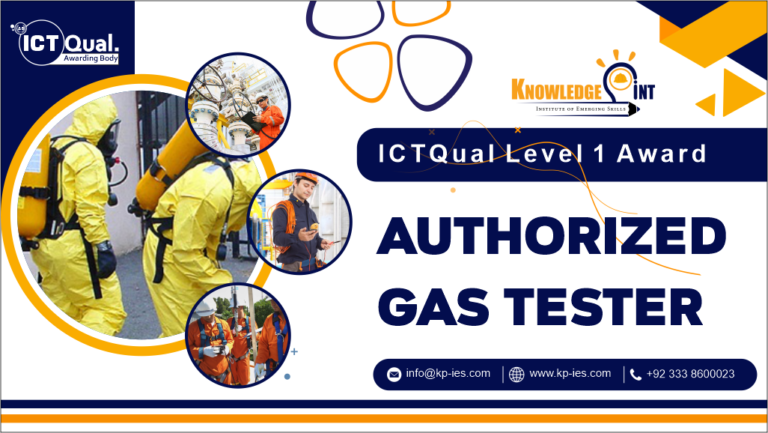Civil engineering is the backbone of modern society, shaping infrastructure and ensuring the safety, sustainability, and efficiency of the built environment. The ICTQual Level 5 Diploma in Civil Engineering (240 Credits) is a comprehensive two-year program designed to equip learners with the foundational knowledge and advanced skills needed to excel in this ever-evolving field.
The ICTQual Level 5 Diploma in Civil Engineering is the perfect starting point for individuals aspiring to build a successful career in civil engineering or pursue advanced academic opportunities. The curriculum combines theoretical knowledge with practical applications, preparing students to tackle real-world engineering challenges.
In the ICTQual Level 5 Diploma in Civil Engineering, you’re not just gaining a qualification you’re taking the first step toward becoming a leader in building the world’s infrastructure. Whether you’re looking to make an impact in your community or take on global challenges, this program is your pathway to success.
Course Overview
The ICTQual Level 5 Diploma in Civil Engineering consists of 24 mandatory units which are as follows.
Year 1:
- Engineering Mathematics
- Construction Technology
- Structural Mechanics
- Building Materials
- Surveying and Levelling
- Engineering Design Principles
- Geotechnical Engineering
- Hydraulics and Fluid Mechanics
- Health, Safety, and Welfare in Construction
- Construction Project Management
- Environmental Engineering
- Introduction to Structural Analysis
Year 2:
- Advanced Engineering Mathematics
- Structural Steel Design
- Concrete Technology
- Geotechnical Design
- Transportation Engineering
- Advanced Surveying Techniques
- Sustainable Building Design
- Advanced Construction Management
- Hydraulic Engineering and Systems
- Structural Design and Analysis
- Site Investigation and Testing
- Research and Development in Civil Engineering
Learning Outcomes
Year 1: Foundational Knowledge and Practical Skills
- Engineering Mathematics
- Apply mathematical principles to solve engineering problems.
- Utilize calculus, algebra, and trigonometry in design and analysis tasks.
- Construction Technology
- Understand modern construction techniques and equipment.
- Identify and evaluate construction methods for efficiency and sustainability.
- Structural Mechanics
- Analyze forces, stresses, and strains in structural components.
- Apply principles of equilibrium to solve mechanical problems.
- Building Materials
- Identify properties and applications of various construction materials.
- Evaluate the suitability of materials for specific engineering projects.
- Surveying and Levelling
- Conduct precise measurements for land assessment and planning.
- Use surveying equipment to establish accurate site layouts.
- Engineering Design Principles
- Apply engineering principles to design functional and safe structures.
- Create detailed technical drawings and specifications.
- Geotechnical Engineering
- Analyze soil properties and their impact on construction.
- Understand foundation design and slope stability.
- Hydraulics and Fluid Mechanics
- Explore fluid behavior in pipes, channels, and structures.
- Design systems for water flow and drainage.
- Health, Safety, and Welfare in Construction
- Identify and mitigate hazards on construction sites.
- Promote health and safety best practices to ensure compliance with regulations.
- Construction Project Management
- Plan, schedule, and manage construction projects efficiently.
- Utilize tools and techniques for cost control and resource allocation.
- Environmental Engineering
- Assess environmental impacts of construction activities.
- Implement sustainable practices in civil engineering projects.
- Introduction to Structural Analysis
- Perform basic analysis of structural elements under various loads.
- Evaluate structural stability and safety.
Year 2: Advanced Concepts and Specializations
- Advanced Engineering Mathematics
- Apply advanced mathematical techniques to complex engineering problems.
- Use numerical methods for modeling and simulation.
- Structural Steel Design
- Design steel structures in accordance with industry standards.
- Analyze the behavior of steel components under different loading conditions.
- Concrete Technology
- Understand the properties and applications of concrete.
- Design and test concrete mixes for specific engineering requirements.
- Geotechnical Design
- Perform advanced geotechnical analyses for complex projects.
- Design foundations, retaining walls, and slope stabilization systems.
- Transportation Engineering
- Design efficient road networks and transportation systems.
- Analyze traffic flow and implement solutions for congestion and safety.
- Advanced Surveying Techniques
- Utilize GPS and other advanced technologies for precise measurements.
- Conduct topographic and geodetic surveys for engineering projects.
- Sustainable Building Design
- Incorporate energy-efficient and environmentally friendly practices into designs.
- Evaluate the lifecycle of materials and structures for sustainability.
- Advanced Construction Management
- Manage large-scale construction projects with advanced tools.
- Implement strategies for risk assessment, quality control, and resource optimization.
- Hydraulic Engineering and Systems
- Design advanced hydraulic systems for water supply and flood management.
- Analyze and model fluid behavior in complex systems.
- Structural Design and Analysis
- Perform in-depth analysis of structures under dynamic and static loads.
- Utilize software tools for designing reinforced concrete and steel structures.
- Site Investigation and Testing
- Conduct geotechnical investigations and site assessments.
- Analyze test results to inform engineering decisions.
- Research and Development in Civil Engineering
- Conduct independent research to address engineering challenges.
- Develop innovative solutions and contribute to advancements in civil engineering.
Benefits of the ICTQual Level 5 Diploma in Civil Engineering
This comprehensive program offers numerous benefits to students, equipping them with the knowledge, skills, and professional attributes needed for success in the civil engineering field. Below are the key advantages of enrolling in this diploma:
1. Industry-Relevant Skills
- Gain expertise in critical civil engineering domains, including structural design, geotechnical engineering, transportation systems, and environmental impact assessment.
- Develop advanced technical skills such as Building Information Modeling (BIM), GPS technologies, and hydraulic system design.
2. Practical Learning Opportunities
- Apply theoretical concepts through hands-on projects, case studies, and laboratory work.
- Work on a capstone project to address real-world engineering challenges, showcasing your technical and innovative capabilities.
3. Global Recognition and Career Readiness
- Earn a qualification aligned with international academic and professional standards, enhancing global career opportunities.
- Prepare for professional certifications or advanced degrees, such as becoming a Chartered Engineer.
4. Comprehensive Curriculum
- Explore a diverse range of topics, from core engineering principles in the first year to advanced applications and innovations in the third year.
- Embrace sustainability and smart infrastructure concepts to meet the demands of modern engineering projects.
5. Enhanced Employability
- Build a strong foundation in project planning, management, and site supervision, skills highly valued by employers.
- Learn communication, leadership, and professional ethics, ensuring well-rounded personal and professional development.
6. Focus on Sustainability and Innovation
- Incorporate sustainable construction practices and smart city infrastructure planning into your skillset.
- Learn to design earthquake-resistant structures and assess environmental impacts, positioning yourself as an environmentally conscious engineer.
7. Leadership and Entrepreneurial Development
- Develop leadership, entrepreneurship, and risk management skills, preparing you for managerial roles or independent ventures in the engineering sector.
8. Networking and Professional Growth
- Access mentorship from industry experts and academic leaders.
- Join a global alumni network, fostering connections with professionals and organizations worldwide.
9. Job Market Opportunities
Graduates are well-prepared for roles in:
- Structural and Geotechnical Engineering
- Construction Project Management
- Urban Infrastructure Development
- Transportation Planning and Design
- Environmental Engineering
10. Personal Growth
- Cultivate critical thinking, problem-solving, and analytical abilities.
- Enhance your ability to work collaboratively on multidisciplinary teams.
Course Benefits of ICTQual Level 5 Diploma in Civil Engineering (240 Credits – Two Years)
The ICTQual Level 5 Diploma in Civil Engineering offers a range of benefits to learners, empowering them with the skills, knowledge, and opportunities needed to thrive in the competitive field of civil engineering.
1. Comprehensive Knowledge Foundation
- Gain a robust understanding of essential civil engineering principles, including structural design, geotechnics, hydraulics, and construction technology.
- Build expertise in specialized areas such as surveying, sustainable construction, and advanced mathematics.
2. Practical and Hands-On Learning
- Participate in real-world projects, case studies, and simulations that mirror industry practices.
- Develop technical proficiency in modern tools like CAD, BIM, and GPS surveying.
- Conduct site investigations and apply geotechnical testing techniques.
3. Career-Ready Skills
- Master project management and leadership skills to oversee construction projects effectively.
- Learn to implement health, safety, and environmental practices in compliance with regulations.
- Acquire the ability to solve complex engineering problems using innovative solutions.
4. Global Recognition and Industry Alignment
- Achieve a qualification aligned with international standards, enhancing employability worldwide.
- Stay updated with cutting-edge technologies and sustainable engineering practices that are in demand.
5. Pathways for Academic Progression
- Provides a stepping stone to advanced studies, such as the ICTQual Level 6 Diploma in Civil Engineering or relevant bachelor’s degrees.
- Facilitates smooth transitions to specialized certifications and professional engineering qualifications.
6. Diverse Career Opportunities
Graduates of this program are prepared for a variety of roles, such as:
- Site Engineer
- Surveyor
- CAD Technician
- Junior Structural Engineer
- Geotechnical Assistant
7. Focus on Sustainability
- Learn about sustainable building designs and practices that contribute to eco-friendly infrastructure.
- Understand environmental engineering principles to reduce the ecological impact of construction.
8. Research and Innovation Opportunities
- Gain research skills to contribute to advancements in civil engineering.
- Explore innovative solutions in areas like earthquake-resistant structures, smart cities, and sustainable urban planning.
9. Networking and Professional Development
- Engage with peers, instructors, and industry professionals to build a strong professional network.
- Receive mentorship and career guidance from experienced engineers and educators.
10. Enhanced Earning Potential and Career Growth
- Equip yourself with a qualification that boosts your career prospects and earning potential.
- Open doors to senior roles and specialized areas in civil engineering.







